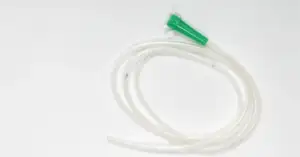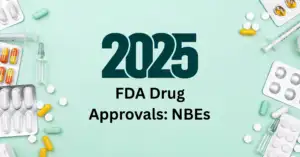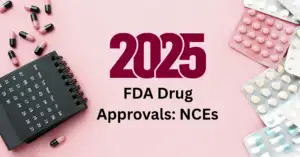Standard Operating Procedures (SOPs) are a set of norms that can be uniformly followed for operational efficiency that can be rendered error-free. SOPs are key guidance documents that are very important in operations that involve several parallel as well as sequential steps with various stakeholders to attain a final common tangible goal or objective. The pharmaceutical industry is one of them and requires implementation of SOPs at every operation. SOPs serve as the cornerstone of operational efficiency and quality assurance within the pharmaceutical industry. In this highly regulated sector, SOPs play a pivotal role in ensuring compliance with stringent standards set forth by regulatory authorities such as the FDA and EMA. These meticulously crafted documents outline step-by-step instructions for carrying out critical processes, from drug manufacturing and testing to quality control, distribution as well as for product complaint handling and reported drug effects from the marketplace. By providing clear guidelines and protocols, SOPs not only mitigate the risk of errors and deviations but also uphold the integrity, safety, and efficacy of pharmaceutical products. In essence, SOPs are the blueprint that guides pharmaceutical companies in their pursuit of excellence, regulatory compliance, and ultimately, the delivery of life-saving medications to patients worldwide.
Standard Operating Procedures (SOPs) in pharmaceuticals ensure consistency and compliance in carrying out global clinical trials by outlining precise protocols for every aspect of the trial, from participant recruitment to data analysis. SOPs serve as a universal guide across different geographical regions, ensuring that global clinical trials adhere to international regulatory standards such as Good Clinical Practice (GCP) guidelines, regardless of the location of the trial site. Effective SOPs streamline communication and collaboration among diverse stakeholders involved in global clinical trials, including researchers, sponsors, regulatory authorities, and ethics committees, thereby enhancing trial efficiency, data quality, and ultimately patient safety.
Pharmaceutical manufacturers rely on Standard Operating Procedures (SOPs) to ensure adherence to strict regulatory standards set by health authorities such as the FDA (Food and Drug Administration) or EMA (European Medicines Agency). SOPs play a pivotal role in maintaining consistency and quality throughout the process by pharmaceutical manufacturers. SOPs contribute to operational efficiency by streamlining workflows, reducing errors, and enhancing productivity within the facilities of pharmaceutical manufacturers. Clear and well-defined procedures outlined in SOPs facilitate employee training and onboarding, enabling staff members to perform tasks effectively and consistently.
Here are some common types of SOPs in the pharmaceutical sector:
- Manufacturing SOPs: These SOPs outline the procedures for manufacturing pharmaceutical products, including processes for formulation, blending, granulation, compression, coating, and packaging. They ensure that products are manufactured consistently and meet quality standards.
- Quality Control SOPs: Quality control SOPs define the procedures for testing raw materials, in-process samples, and finished products to ensure they meet specifications for identity, purity, potency, and safety. They include methods for analytical testing, instrument calibration, and documentation of test results.
- Quality Assurance SOPs: Quality assurance SOPs establish the systems and processes for ensuring that products are manufactured, tested, and released in compliance with regulatory requirements and company standards. They cover activities such as batch record review, deviation management, change control, and internal audits.
- Validation SOPs: Validation SOPs describe the procedures for validating equipment, processes, and systems used in pharmaceutical manufacturing. This includes validation of manufacturing processes, cleaning procedures, analytical methods, and computerized systems to ensure they are suitable for their intended use and meet regulatory requirements.
- Cleaning SOPs: Cleaning SOPs outline the procedures for cleaning and sanitizing equipment and facilities to prevent cross-contamination and ensure product safety. They include instructions for cleaning agents, cleaning schedules, and verification of cleanliness.
- Training SOPs: Training SOPs define the procedures for training employees on job responsibilities, standard operating procedures, and good manufacturing practices (GMP). They ensure that personnel are adequately trained and competent to perform their assigned tasks.
- Documentation SOPs: Documentation SOPs establish the requirements for documenting all aspects of pharmaceutical manufacturing, testing, and quality assurance activities. This includes procedures for record keeping, documentation review, and retention of records in accordance with regulatory requirements.
- Compliance SOPs: Compliance SOPs outline the procedures for ensuring compliance with regulatory requirements, industry standards, and company policies. They include procedures for regulatory submissions, inspections, and responding to regulatory agencies.
- Safety SOPs: Safety SOPs define the procedures for ensuring the safety of personnel, products, and the environment during pharmaceutical manufacturing operations. This includes instructions for handling hazardous materials, personal protective equipment (PPE), emergency response, and safety training.
- Supply Chain SOPs: Supply chain SOPs outline the procedures for managing the procurement, storage, and distribution of raw materials, components, and finished products in the pharmaceutical supply chain. They include procedures for supplier qualification, material receipt, inventory management, and distribution controls.
- Complaint handling SOPs: These SOPs outline handling the product complaints received from the clinician, pharmacist or patients related to the quality and supply of the product.
- Pharmacovigilance SOPs: These SOPs outline the management of therapeutic safety of the product and continuous vigilance about any reported drug side effects when the product is available in the marketplace.
Standard Operating Procedures (SOPs) play a pivotal role in the pharmaceutical industry, offering a multitude of advantages. Firstly, SOPs ensure consistency and uniformity in processes, from manufacturing to quality control, thereby enhancing product quality and safety. They also facilitate compliance with regulatory requirements, guiding employees on best practices to maintain regulatory standards and adhere to Good Manufacturing Practices (GMP). Additionally, SOPs streamline training by providing clear instructions and protocols, reducing errors, and promoting efficiency. Moreover, they serve as valuable reference documents, enabling quick troubleshooting and decision-making in complex situations. Ultimately, SOPs contribute to the overall reliability, compliance, and success of pharmaceutical operations.
In conclusion, Standard Operating Procedures (SOPs) serve as the cornerstone of operational excellence within the pharmaceutical industry. By delineating precise protocols for every aspect of drug development, manufacturing, and distribution, SOPs ensure consistency, quality, and regulatory compliance. Embracing a culture of adherence to SOPs not only fosters efficiency and safety but also upholds the integrity of pharmaceutical products, ultimately safeguarding public health.





